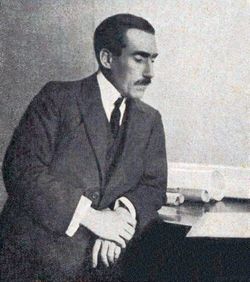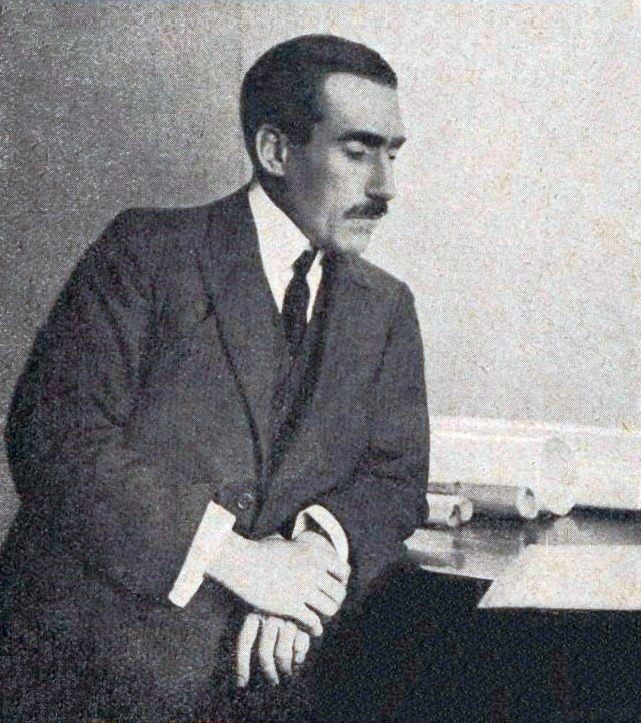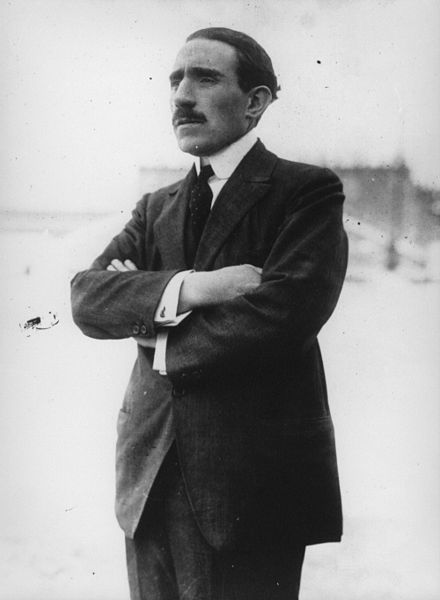Renault built one of France's largest automobile manufacturing concerns, which bears his name to this day. During World War I his factories contributed massively to the war effort notably so by the creation and manufacture of the first effective tank: the Renault FT tank.
Accused of collaborating with the Germans during World War II, he died while awaiting trial in liberated France toward the end of 1944 under uncertain circumstances. His company was seized and nationalized by the provisional government of France although he died before he could be tried. His factories were the only ones permanently expropriated by the French government.
In 1956, Time Magazine described Renault as "rich, powerful and famous, cantankerous, brilliant, often brutal, the little Napoleon of an automaking empire — vulgar, loud, domineering, impatient, he was a terror to associates, a friend to practically none," adding that to the French working man, Renault became known as "the ogre of Billancourt."
Three weeks after France was liberated in 1944, Renault surrendered "on condition that he would not be jailed until indicted." He was arrested outside Paris on 22 September 1944, on charges of industrial collaboration with Nazi Germany. At the time of his arrest, Renault "denied that his firm had received $120,000,000 from the Germans for war materials, said that he had kept his huge, much-bombed plant going at the request of Vichy to keep its materials and equipment out of Nazi hands and to save workers from deportation." He was incarcerated in Paris's Fresnes Prison being already seriously ill at the time. The records for the exact period of his incarceration at Fresnes would later turn out to be missing. Renault was moved on 5 October to a psychiatric hospital at Ville-Evrard in Neuilly-sur-Marne.
When Renault's health quickly declined on 9 October 1944 he was again moved to a private nursing home at the clinic Saint-Jean-de-Dieu in the Rue Oudinot, Paris at the request of his family and supporters, having gone into a coma. He died on 24 October 1944, four weeks after his incarceration, still awaiting trial and having claimed to have been mistreated in Fresnes Prison, with his 1918 French Legion of Honor for exceptional contribution to the victory of the First World War, having been expunged by the Vichy régime.
No autopsy was performed and the exact cause of Renault's death remains unclear. An official report at the time gave the cause of death as uremia.
Louis Renault is buried at his country home Chateau Herqueville, in Herqueville dans l'Eure.
Renault built one of France's largest automobile manufacturing concerns, which bears his name to this day. During World War I his factories contributed massively to the war effort notably so by the creation and manufacture of the first effective tank: the Renault FT tank.
Accused of collaborating with the Germans during World War II, he died while awaiting trial in liberated France toward the end of 1944 under uncertain circumstances. His company was seized and nationalized by the provisional government of France although he died before he could be tried. His factories were the only ones permanently expropriated by the French government.
In 1956, Time Magazine described Renault as "rich, powerful and famous, cantankerous, brilliant, often brutal, the little Napoleon of an automaking empire — vulgar, loud, domineering, impatient, he was a terror to associates, a friend to practically none," adding that to the French working man, Renault became known as "the ogre of Billancourt."
Three weeks after France was liberated in 1944, Renault surrendered "on condition that he would not be jailed until indicted." He was arrested outside Paris on 22 September 1944, on charges of industrial collaboration with Nazi Germany. At the time of his arrest, Renault "denied that his firm had received $120,000,000 from the Germans for war materials, said that he had kept his huge, much-bombed plant going at the request of Vichy to keep its materials and equipment out of Nazi hands and to save workers from deportation." He was incarcerated in Paris's Fresnes Prison being already seriously ill at the time. The records for the exact period of his incarceration at Fresnes would later turn out to be missing. Renault was moved on 5 October to a psychiatric hospital at Ville-Evrard in Neuilly-sur-Marne.
When Renault's health quickly declined on 9 October 1944 he was again moved to a private nursing home at the clinic Saint-Jean-de-Dieu in the Rue Oudinot, Paris at the request of his family and supporters, having gone into a coma. He died on 24 October 1944, four weeks after his incarceration, still awaiting trial and having claimed to have been mistreated in Fresnes Prison, with his 1918 French Legion of Honor for exceptional contribution to the victory of the First World War, having been expunged by the Vichy régime.
No autopsy was performed and the exact cause of Renault's death remains unclear. An official report at the time gave the cause of death as uremia.
Louis Renault is buried at his country home Chateau Herqueville, in Herqueville dans l'Eure.
Sponsored by Ancestry
Advertisement
Advertisement




